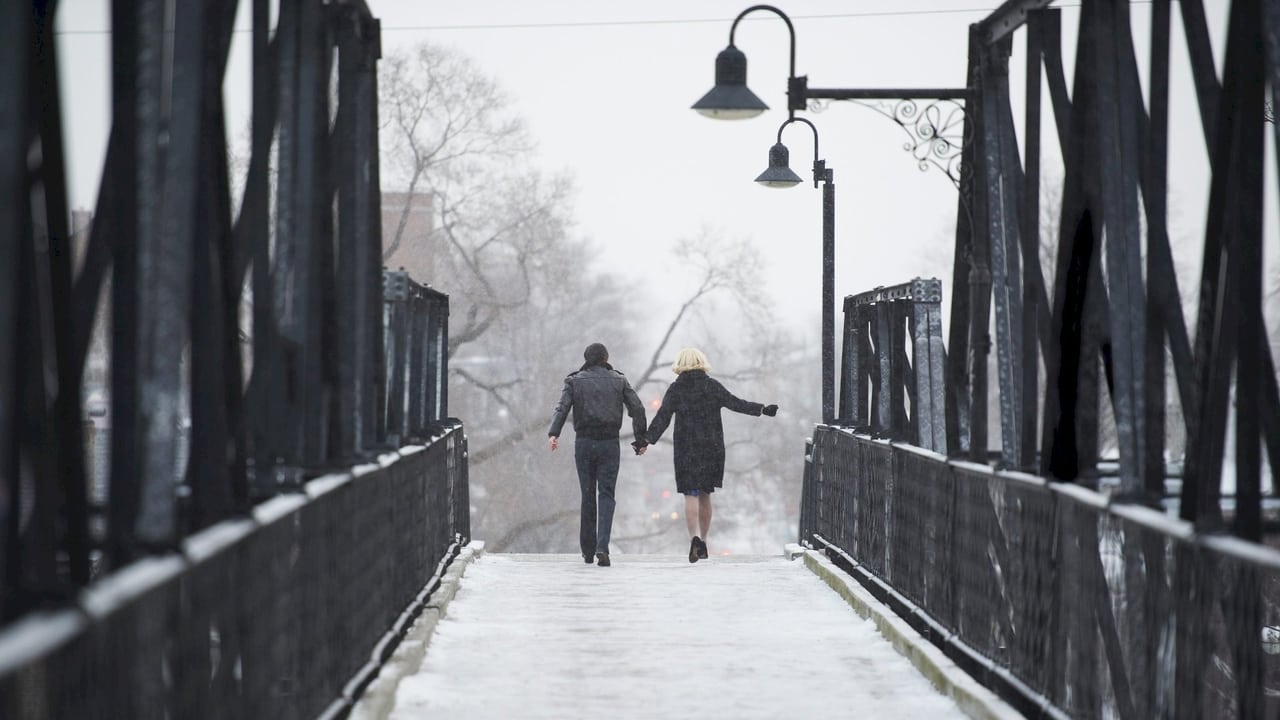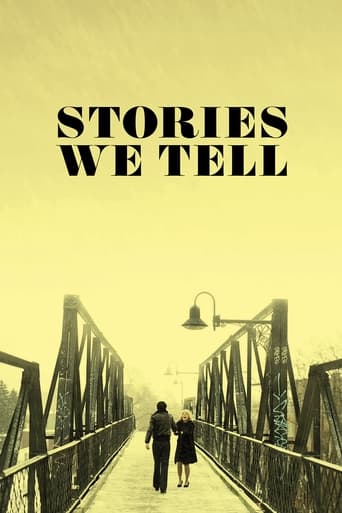

Good start, but then it gets ruined
... View MoreAfter playing with our expectations, this turns out to be a very different sort of film.
... View MoreI think this is a new genre that they're all sort of working their way through it and haven't got all the kinks worked out yet but it's a genre that works for me.
... View MoreAll of these films share one commonality, that being a kind of emotional center that humanizes a cast of monsters.
... View MoreI think the marketing blurb had hyped me up to expect something this wasn't. I'd read of bold playing with form and reality, the nature and recall of memory etc... I enjoyed Away From Her very much too, so was hoping for something unusual here. I can't agree with the other reviews here.I didn't find it particularly courageous or bold in its form, or content matter. Some scenes are recreated, it's as clear as day, not formally bold, and I'm perplexed by the reactions. I didn't come away feeling I'd learned much about the human condition, it was more like going to a friend's house, only, a friend I'd only just met and had no connection with, and having her life story relayed to me. There's nothing shocking in the family timeline, which is fine, but there was no great emotional question I could relate to and wanted answered either. It feels more self-indulgent than the personal insight I was expecting. Not a particularly fascinating life or universal family story. Just one girl's pretty-average story. Not to take away from what the Director feels or demean her life experience, but honestly, it felt precious and narcissistic. I find some aspects of my family history equally as interesting but I know no-one would want to see a film about it.
... View MoreWhat an incredible, fabulous and all the positive adjectives combined journey it is to watch such a beautifully done story Sarah Polley's family told.The movie is shocking but it shocked me in tender way, and tender myself immersed in for the entire movie. Polley tackled the story so proficiently and create a strong tense for it be remade into some kind of detective story, and isn't it so relating to our personal experiences, that we grew up, and discovered certain fragments which would fulfill a grandiose puzzle of our own family (and we just might not be able to finish it)).Heck, the point being, watch the movie, damn it.
... View MoreProduced in collaboration with the National Film Board of Canada, Canadian director Sarah Polley's documentary Stories We Tell is a tender and often moving inquiry into the life of her mother Diana who died in 1990 from cancer when Sarah was only eleven years old. Her investigation, consisting of interviews with her Toronto family members aided by Super-8 home movies (60% of which are recreated using look-alike actors), uncovers family secrets that slowly begin to be revealed during the course of the film. Sarah not only directs the movie but also conducts the interviews with the storytellers that include her father, siblings and half-siblings, and close friends of her mother who all share their memories of Diana and what she meant to them in their lives.Though Sarah does not share her own feelings or thoughts, she does acknowledge that her bond with Michael and her four siblings grew closer after her mother's death. Polley comes from a family closely associated with the theater. Her mother was an actress as was her father Michael, who narrates the story from his written account of his memories. Family members are asked to "tell the story from the beginning until now," and they relate their recollection of Diana and how she affected their lives, their stories filled with emotion and sometimes tears. As the storytellers go on, it becomes clear that Diana was a free spirit who was a more complex person than at first imagined.Everyone's memories of Diana and the details of her life are somewhat different but, on the whole, they complement each other, each providing one more piece of the puzzle. One interesting aspect of the story is the long term close relationship Diana had with film producer Harry Gulkin, a former union organizer and left-wing activist, and how the consequences of their affair strongly impacted Sarah's life. Though the film talks about their affair as one that stemmed from Michael's inability to satisfy Diana on many levels, we do not really know Diana's own thoughts and feelings on the subject.As far as Gulkin is concerned, he does share his point of view but lets it be known that he is uncomfortable in the context of the film and that he feels the story should be his alone to tell. Although it may go on a bit longer than necessary, Stories We Tell is never less than fascinating and is especially noteworthy for its refusal to engage in mawkishness or sentimentality. Though there are differences in interpretation among the storytellers, the fact that Sarah's family remains supportive of each other after all the years is a testament to their resilience and mutual respect.Stories We Tell underscores the point that it is difficult to separate what actually happened from the story we tell about it, our interpretation of the event. What is not said, however, is that over time, the story may become the only reality we know. When that happens, we no longer have a story, but we become our story, a position that severely limits our ability to grow. Perhaps the film's greatest contribution is to suggest a process that other families can use to look at how their interpretations often get in the way of acknowledging the simple truth of what happened and allow them to see events in their life from a broader perspective.
... View MoreThis is the first time in a very long time I have seen a documentary that actually fits the definition: "using pictures or interviews with people involved in real events to provide a factual report on a particular subject". It feels good to enter the word "documentary" in the search box and not end up watching some transparent propaganda, investigative journalism dribble or twisted portrayal of the facts. Step aside BBC Panorama, Louis Theroux and Michael Moore. And thank you Sarah Polley for simply being interested in the truth. I cannot help think it would not have been half as good had most of the protagonists not been from the world of acting and writing, as they would not have been so eloquent and interesting in the way they relayed their memories. But Sarah Polley clearly used that to her advantage by opting for this interview based and script-reading format.
... View More